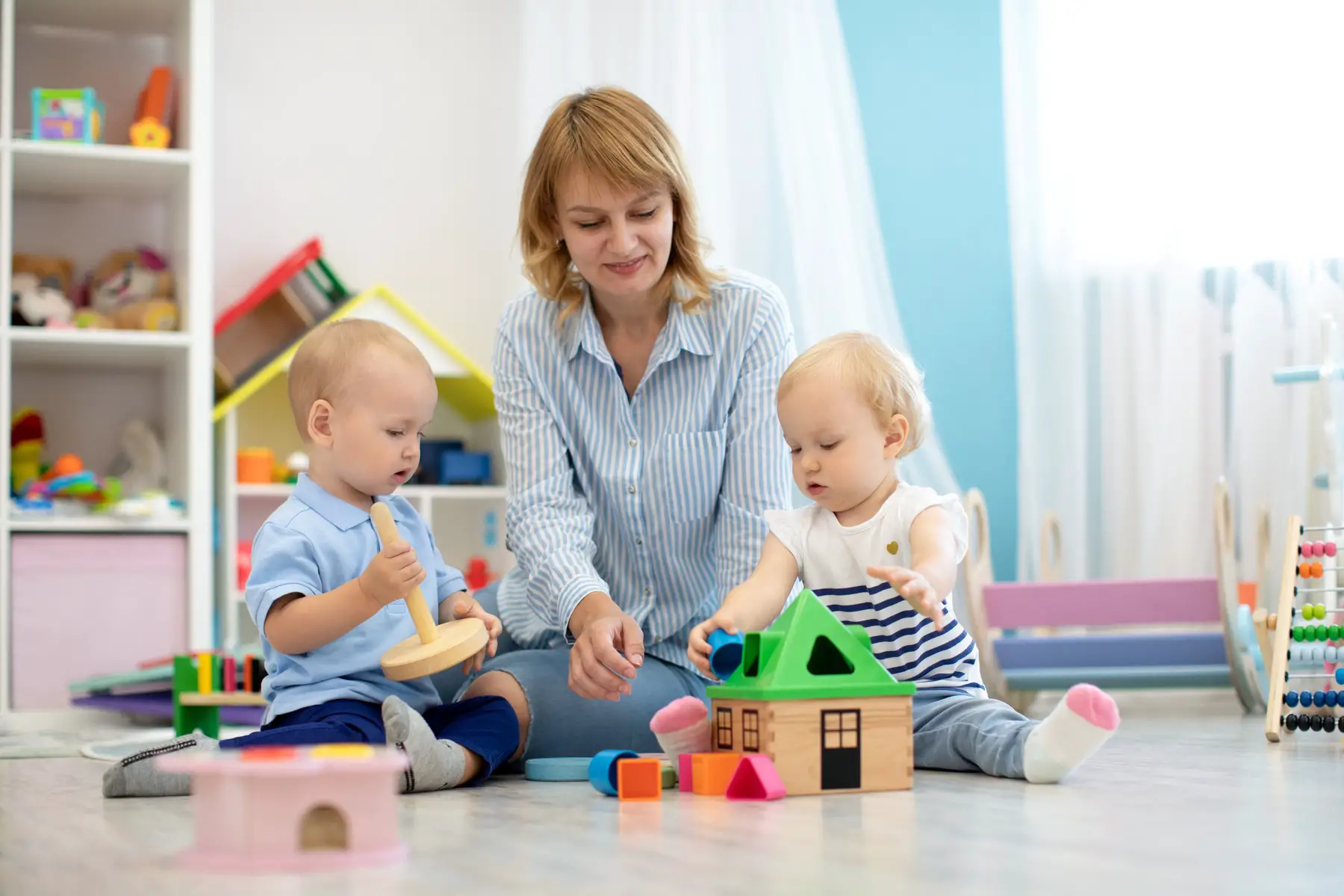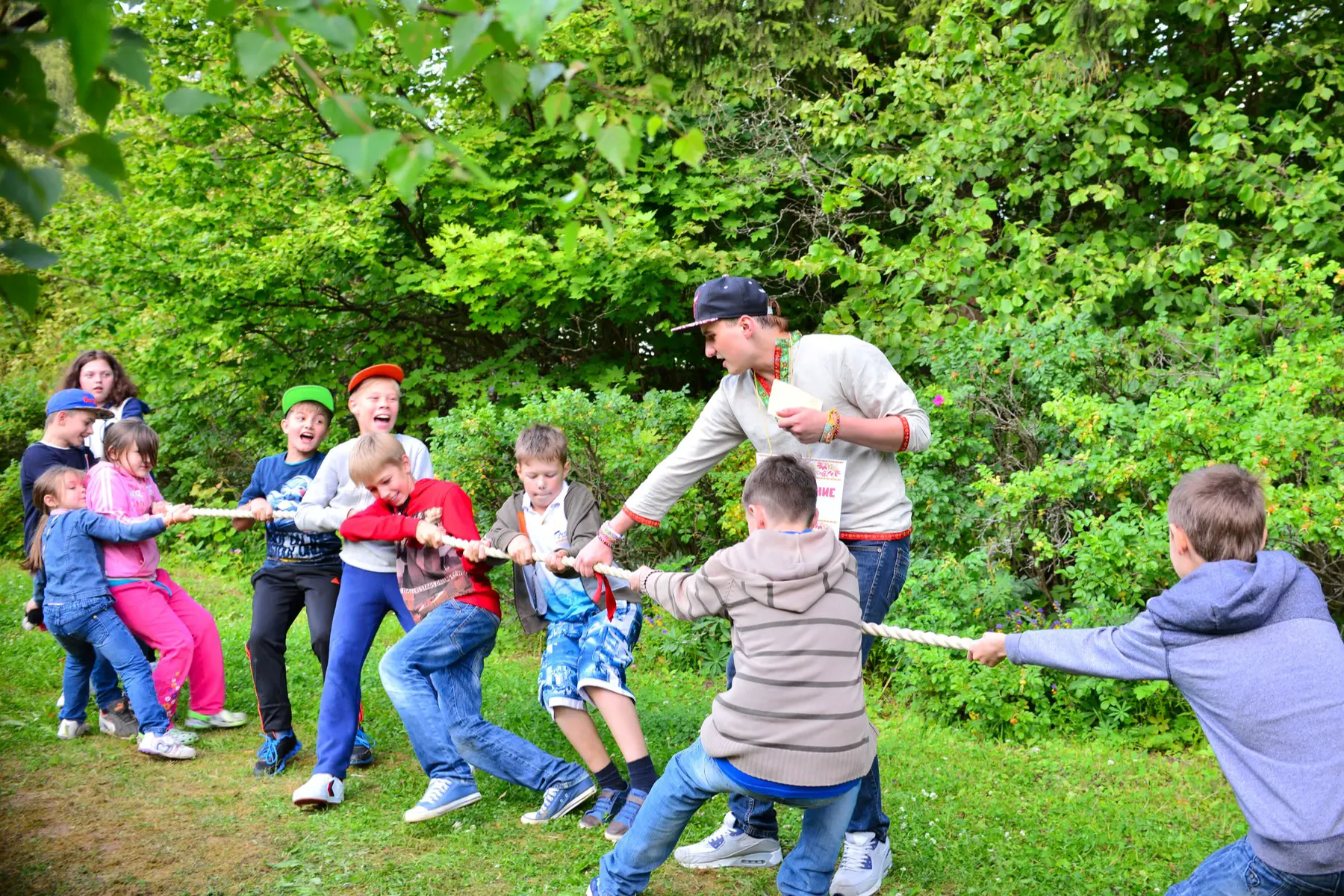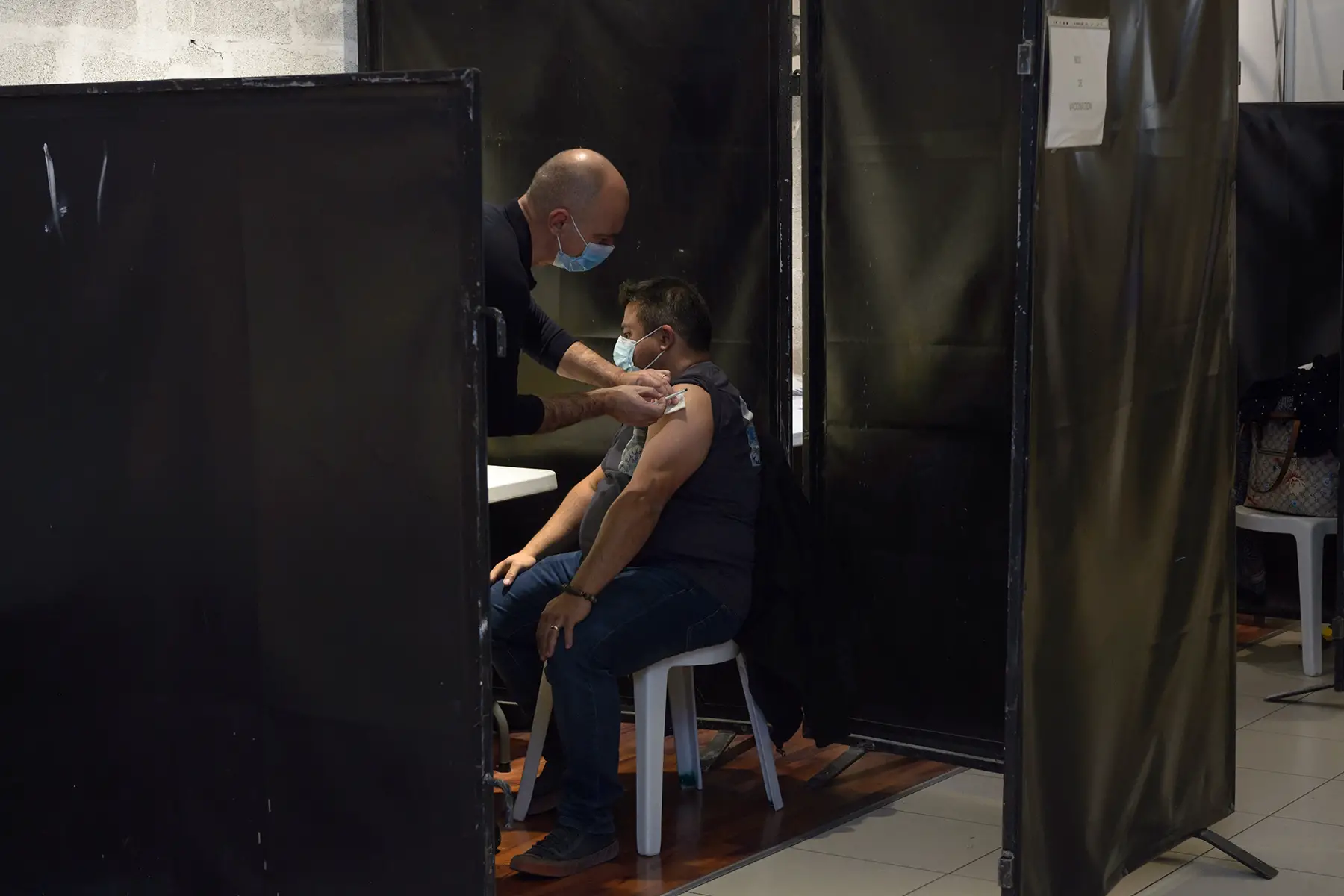Whether you’re planning to have a baby in France or move to l’Hexagone with young children in tow, you’ll need a good grasp of the childcare system in your new home. While places in public nurseries can be hard to come by, the good news is that France has a wide range of affordable childcare options and means-tested benefits. And from the age of three, preschools in France are mandatory and free.
To help you understand and navigate France’s childcare system, the following article covers:
- Childcare in France
- Who can access childcare in France?
- Early daycare in France
- Childminders in France
- Nannies and au-pairs in France
- Babysitters in France
- Employer childcare in France
- Childcare for school-age children in France – before- and after-school clubs
- Childcare in France during school holidays
- How to find childcare in France
- Childcare costs in France
- Child benefits and childcare allowance in France
- Children’s healthcare in France
- Becoming a childcarer in France
- Useful resources
Childcare in France
When you move your family to a new country, one of your priorities will be finding the right childcare services for your needs. It’s best to start researching and applying even before you arrive, although some services, like public nurseries, will require you to have a local address. Luckily, France has a wealth of childcare options that include private, associative, and family-run nurseries, or crèches. In addition, many French children are looked after by qualified childminders called nounou or assistantes maternelles, by babysitters, and sometimes by au-pairs or live-in nannies.

Between tax breaks, childcare services, and cash provisions, France spends roughly 3.6% of its GDP on family benefits (PDF). The OECD family database provides a wealth of additional information to compare French childcare provision to that of other countries. The range of benefits available for families living in France is significantly more than in many other OECD countries.
Despite this, almost 20% of children under the age of 6 (slightly below the EU average) benefit from some form of informal, unpaid childcare during a typical week. This figure falls to 14.5% for primary school-age children. Informal childcare generally means that relatives, neighbors, or friends look after them for an average of 10 hours per week (PDF). However, expats without access to this informal care will need to look at other options.
Happily, France also scores well when it comes to quality of childcare (PDF), as staff looking to enter this profession need Master’s level qualifications. Around 22% of children in French primary schools attend out-of-school services and centers (PDF). On average, these children attend 6.3 hours per week, which is below the EU and OECD averages (10.5 and 9.5 respectively).
Parental leave in France
When it comes to parental leave, fathers can now get 25 days off, which recently increased from 11. Mothers, on the other hand, have 16 weeks of paid leave. Usually, they take four to six weeks off before birth and ten to twelve following the birth. If you already have two or more young children at home, maternal leave goes up to 26 weeks in total. And if you’re expecting twins, you can get 34 weeks off work. Either or both parents can take up to an additional 26 weeks off work, but with a remuneration equivalent to roughly 15-20% of their salary.
Because parents rarely take more than a few months off, it’s common for babies to enter daycare at just 3 months. In fact, 60% of French children participate in early childhood education, which is one of the highest rates for OECD countries (PDF). For more information on this and much more, read our article on having a baby in France.
Who can access childcare in France?
There are many different childcare options available in France, both public and private, which you can access as long as you are a full-time resident in the country. The main requirement is that your child must have had all of their vaccines. This applies to all childcare options, private or public, when your child is looked after alongside other children. For those born after 2017, this includes 11 mandatory vaccines. More flexible options include live-at-home nannies or au-pairs. If you cannot access regular childcare and must stop or reduce your working hours to look after your children, the PreParE (prestation partagée d’éducation de l’enfant) offers an allowance of up to €405 per month to cover part of the losses.
Early daycare in France
Children can access early daycare in France from two months until they go to mandatory preschool, or maternelle, at the age of 3. There is a wide variety of daycare options and structures available.
Crèches collectives
The crèches collectives (also known as “accueil collectif réguilier”) are standard group nurseries that can host up to 60 children. These are either run by local authorities or a private organization such as an association set up by professional childminders.
Crèche parentale
These parent-run nurseries can accommodate up to 24 children on a regular and/or occasional basis. Just like for public nurseries, local bodies known as PMI (protection maternelle et infantile) oversee these crèches. Parents often get together to open this kind of structure when they lack other local daycare options.
Halte-garderie
These are like part-time drop-in centers for children under the age of 3. They are accessible to all parents and run by qualified staff. The conditions for enrolment vary according to the establishment, which can host a maximum of 60 children. They can be public or private structures and parental income typically determines the fees. However, remember that private care centers are typically more expensive as they have more leeway when setting fees.
Jardin d’enfants
These structures welcome children aged 18 months to 6 years during the day. Whether private or public, they have an educational program to help children integrate into preschool. They are often open later than preschools and the fees depend on parental income. Slightly larger than nurseries, they can host up to 80 children.
Crèche familiale
Professional childminders can run these mini-nurseries from their own home, looking after 1 to 3 babies or toddlers. Parents may prefer this form of daycare since the child gets more individual attention and forms a close bond with the childminder.

Micro Crèche
These small structures host a maximum of nine children within a space (including in private homes) run by three childcare professionals. This may respond to a lack of other affordable structures in rural environments, for example, with few young families. Some childminders also band together to work in less isolated conditions.
Multi-accueil
Today, about three-quarters of all childcare structures in France (PDF) are essentially “multi-accueil“, meaning that they combine different types of options: all-day, part-time, or temporary childcare. They are also sometimes called “maisons de la petite enfance“.
International childcare in France
There are also multilingual childcare options available in France. In these structures, children learn or use a second language through play and daily activities. Normally, a majority of staff speak the second language fluently. While most of these facilities have English as the second language, some offer other languages including Spanish, Italian, or Mandarin. A non-exhaustive list is available on the Crèche Bilingue website. In eastern France, near the border with Germany, a network of Franco-German childcare centers also exists in and around Strasbourg.
Childminders in France
Childminders are formally known as assistante maternelle or assmat for short, but more commonly called nounou by both parents and children. They are certified professionals who have completed 120 hours of training and have the authorization to work as childminders in their region. They most often look after three or four babies or young children in their own homes.
Parents may prefer this option for its greater flexibility in terms of their working schedules. It also means they can meet several childminders before picking who looks after their baby and have more individualized care. Typically, people ask around and rely on word-of-mouth, but there are also good websites that you can use to search for local childminders, including Nounou-Top and Top-Assmat.

Nonetheless, a work contract, signed by the parents as employers, regulates and structures their working time and holiday leave. A nounou typically looks after a child for up to 9 hours per day, 5 days per week. But it’s also possible to arrange part-time contracts. Depending on the arrangement, parents can either provide their child’s food each day or pay a supplement if the childminder cooks meals and provides snacks.
Costs of childminders in France
The baseline salary for a childminder cannot be below €3.06/hour. If the childminder has to work beyond the standard 45 hours/week, the contract stipulates the charge for extra hours, which must be at least 10% above the baseline rate. An additional allowance, typically set at €3.39 per day, may be included in the contract to cover the costs of things like materials (toys, nappies, linens), heating, and electricity. There is a handy online calculator to help you understand these additional charges.
Fees are highly state-subsidized. Much like for the different types of crèche, what you pay will depend on household salary, among other factors. You can check what you are entitled to depending on your type of work and family size by answering a few questions on the Service Public website. These state benefits, known as the Complément de libre choix du mode de garde (CMG) can cover up to 85% of a childminder’s fees.
Nannies and au-pairs in France
If you need a person to regularly look after your older children, it’s possible to hire someone for tasks like school pick-ups, help with homework, or other needs. Live-at-home nannies are rare in France, but some families do host au-pairs to help with childcare. Unlike the assistante maternelle, a nanny or au-pair does not need to have any specific qualifications. However, optional diplomas are available, such as the BAFA (Brevet d’Aptitude aux Fonctions d’Animateur) to learn how to organize activities for children, or AFPS (Attestation de Formation aux Premiers Secours) for first-aid techniques. As the employer, you can therefore stipulate that you seek to hire someone with these qualifications, or with specific linguistic or other skills.
Before hiring a nanny or au-pair, you should check their references as well as their ID and work permit with the Prefecture de la Police. You will also need to open an account with Pajemploi, which will help you with the contract, monthly payslips, and administrative declarations. To facilitate the whole process, you might want to go through an agency that specializes in international or bilingual childcare options. These include International Nannies, Great British Nannies, and Baby-Speaking, but there are likely to be local ones in your region.
Once you declare their salary, the Caisse des Allocations Familiales will take your earnings into account to see how much state security will cover. On top of this, 50% of your childcare expenses are tax-deductible, although there are limits to how much you can declare. For more personalized information, the Service Public website has more information and a tax deduction simulator.
Babysitters in France
For less frequent childcare needs, babysitters may offer their services by posting an ad at the local bakery or supermarket, or on online Facebook groups, for example. People also tend to rely on word-of-mouth. Much like with nannies, if you don’t want to do all the searching, vetting, and contracting yourself, you can turn to specialized agencies. Babysitters will come under the category “garde occasionnelle“. Agencies that offer this service include Babychou and Kangourou Kids.
There are a number of advantages to using such an agency. These include the fact they provide replacements if your usual babysitter is sick or unavailable and give their employees secure contracts. In addition, they provide you with a fiscal document at the end of the year, showing the total sum paid that you can deduct from taxes for childcare. Such babysitting services will typically cost around €20/hour during daytime hours. Bear in mind that 50% of this is tax-deductible. Moreover, if you employ a babysitter for at least 16 hours per month, the CAF (a national family allowances fund) can cover part of the cost depending on the number of children, their age, and your earnings. This benefit is called the complément de libre choix du mode de garde (CMG) and can be anywhere between €90 and €480 per month.
Employer childcare in France
Some large companies or public institutions like hospitals may provide on-site or nearby childcare facilities known as crèche d’entreprise or inter-entreprise. These can also offer places to families in the neighborhood and can generally accommodate up to 60 children. A place for your child is not guaranteed, however, even if you’re employed there, as spaces are in high demand. It’s best to ask your employer about any such options and sign up for your baby as soon as possible.
Childcare for school-age children in France – before- and after-school clubs
In France, schools organize before and after-school care for all school-age children. Breakfast is provided if parents need to drop their children off early, and a snack if they need to stay after school. After-school care is typically available until 18:30. During this time, younger children play, while older children may have homework time. The costs of these pre and after-school clubs are low and highly subsidized. You will typically pay around €5 per day of after-school care regardless of how long your child stays.
On days or afternoons when there are no regular classes, such as Wednesdays in many typical schools, your child can go to a centre de loisirs. This is a recreational center hosted in your child’s or a nearby school. Children are there mostly to play and take part in other fun activities. It’s a time when classes are mixed, so children mingle more with others of different ages. Again, this is highly subsidized and you will be asked to contribute based on family income. Your school will advise you when and how to sign up for your child.
Childcare in France during school holidays
The state offers two main options for childcare during school holidays. The first of these is the local recreational centers mentioned above. The second is camps known as colonie de vacances. These camps are often in a natural location, like the seaside or mountains. There, a group of employees and young volunteers will look after groups of children. One adult is in charge of 8 children if they are under 6, and 12 children over 6. Again, your family income will determine what you pay.

Some of these holiday camps may be organized around specific themes, like a sport, culture, or language program. These are only available to children over six. Scout camps also exist in France, in which case participants may sleep outdoors in tents and help prepare meals. These are aimed at adolescents rather than children. The Service Public website has a list of the associations in France approved to run scout camps.
How to find childcare in France
Your local Mairie will have ample information about local childcare services, including lists of nurseries and activity centers. To find a babysitter, nanny, or childminder, you can use websites like Nounou-Top or Maminou. The CAF’s dedicated website, monenfant.fr, also takes you through the steps of choosing the right childcare for your family. You can input your address and find a list of local daycare centers or after-school clubs. It’s always best to ask around, talk to other parents and visit the facilities beforehand if you can.
Childcare costs in France
The good news is that school is free for all children from the age of three in France. Before that, most children are looked after by a nounou (a professional childminder) or in a crèche (nursery). The costs of these two options are roughly the same but will vary quite a bit depending on your earnings. The CAF (Caisse d’allocations familiales) provides you with what is known as a “quotient familial“. This number is determined by your earnings and family situation.
As a rough idea, the lowest-earning families may pay as little as €50/month for a full-time place in a nursery. But costs rise with salary. Therefore, a family earning around €4,000/month will pay around €400. The highest-earning families could be spending up to €1,000 per child. Overall, childcare fees in France are slightly above EU average and slightly below OECD average. According to the OECD Family Database, a couple with two children in full-time daycare can expect to spend 23% of their income on childcare.
Child benefits and childcare allowance in France
Everyone residing permanently in France with children can sign up to the CAF, register their earnings and family situation, and see what benefits they can get. Whether you are expecting a child or seeking temporary childcare for older children, the CAF is a good port of call. It covers all the information about your rights and allowances. There, you can access a list of all the social benefits that apply to families with children.
For example, benefits include the allocations familiales, which you automatically receive once you have two or more children. They last until you only have one child under 20 in your charge. You can use an online simulator to estimate what this allowance would amount to for your family. In addition, the Paje (prestation d’accueil du jeune enfant) covers various benefits including payouts at birth or adoption and contributes to childcare expenses through the complément de libre choix du mode de garde. Moreover, if you decide to work less or stop working to look after your child, the PreParE (prestation partagée d’éducation de l’enfant) offers an allowance of up to €405/month.
Children’s healthcare in France
In France, either a GP or a pediatrician should see your child at least once a year, and more often for very young children. They will have regular check-ups and mandatory vaccines depending on their age. Be sure to register your child with a local doctor. You will need proof of full vaccination to sign up your child to a nursery or school. For more information, read our guide to children’s healthcare in France.
Becoming a childcarer in France
The official Service Public website has a practical PDF guide for anyone interested in being a childcarer in France. It gives an overview of the different types of structures you can work in or create, and the relevant rules regarding authorization and certifications. Rules regarding working as a full-time employee in a nursery are very different from those concerning part-time babysitting and homework help, for example. For the latter, you can simply look for local online forums or Facebook groups, or contact agencies with your CV and references.
Setting up your own daycare facility is a more complex process. You will need the relevant childcare qualifications and must present a detailed proposal to local authorities. This will have to include a study of local childcare needs and an architectural plan of the space proposed. Pediatricians from the local child protection service (PMI) will then visit this space to give their approval. After that, the Conseil général can take three months to give their approval.
If you’re interested in fostering children, your first port of call is your local PMI. They will assess your ability to look after children, and you must have a valid residence and work permit if you are not from the EU. When you foster a child in France, you are in effect an employee of a child protection association or local administration. As such, you receive compensation for your services roughly equivalent to minimum wage. The website of the Service Public has more information and a form you can download.
Useful resources
- Caisse d’allocations familiales (CAF) – The website of the national family allowances fund where you should register to receive benefits.
- MonEnfant – The CAF’s dedicated website for a step-by-step guide to finding the right childcare option for you.
- Service Public – The central government administration portal with a section on family life.
- Pajemploi – The website through which you will need to register as an employer if you’re hiring a childminder.
- Ministère du travail, emploi et insertion – Labor Ministry website






